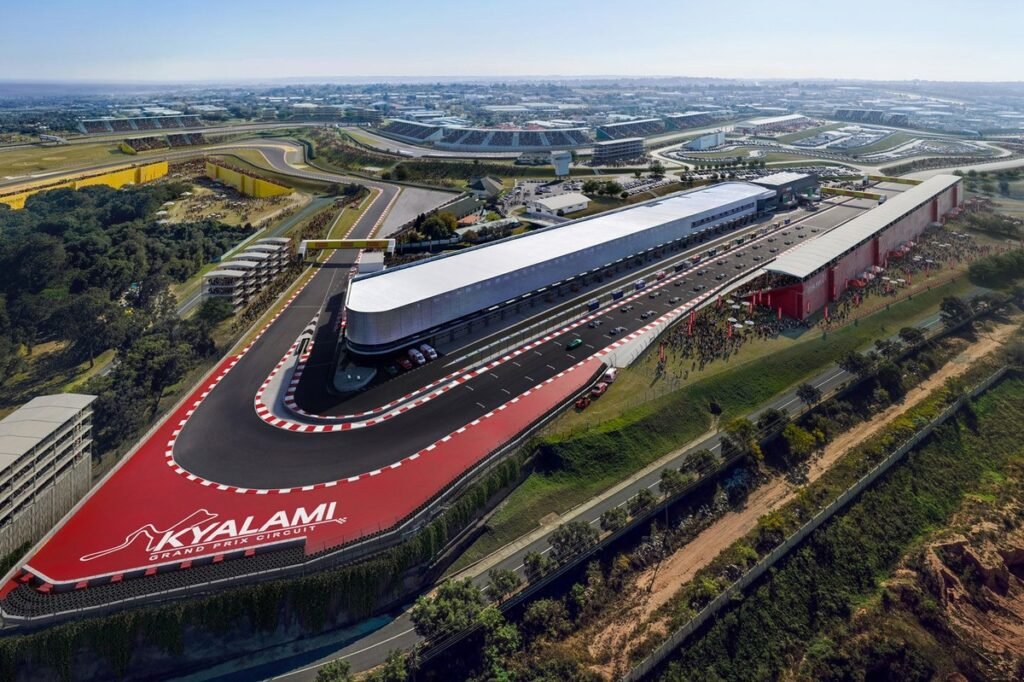South Africa Moves Closer to Formula 1 Return
The Kyalami circuit in South Africa has received FIA approval to upgrade to Grade 1 status, a crucial step towards potentially hosting a Formula 1 Grand Prix for the first time since 1993. The improvement plan is expected to take three years and includes enhancements such as revised run-off areas and new barriers, though the 4.5 km track layout will remain unchanged.
Despite this momentum, significant challenges lie ahead. The South African government has been slow to establish a clear process for securing an F1 race, despite repeated calls for F1’s return from local politicians. A new bidding committee has been formed, but decisions on applications have been delayed. By March 18, three bids were submitted: Kyalami and two from Cape Town. However, the Cape Town Grand Prix SA’s bid has been disqualified amid concerns over the $560,000 fee to express interest.
Sports Minister Gayton McKenzie referred to Kyalami’s upgrades as a "massive step," despite committee representatives clarifying the upgrades are not connected with the bidding process. Igshaan Amlay, chief of the disqualified Cape Town GP, emphasized the need for transparency in the bidding process, stating, “A flawed process can be detrimental.”
Funding remains a significant obstacle, with South Africa struggling with a 32.9% unemployment rate and broader economic challenges. F1 executives have expressed skepticism regarding potential funding sources, as the viability of a South African Grand Prix hangs in the balance. Meanwhile, a proposed event in Tangiers, Morocco, led by former McLaren team principal Eric Boullier, is still in its nascent stages.
Thailand’s Street Race Proposal Gains Traction
In contrast, Thailand has moved forward decisively with a $1.2 billion bid to host a Grand Prix on the streets of Bangkok, targeted for 2028. Following consultations between F1 CEO Stefano Domenicali and Prime Minister Paetongtarn Shinawatra, the project has garnered significant governmental backing, showcasing a strong and credible approach to securing an F1 race.
The proposed 5.7 km street circuit around Chatuchak Park will utilize a combination of private and public funding. As tourism enhancement is a priority for the Thai government, support also comes from regional corporate sponsors like Red Bull Thailand.
Lessons from Previous Projects
Domenicali has emphasized the necessity for long-term sustainability in new Grand Prix ventures. This approach stems from the failures of past races in India and Vietnam, both of which collapsed due to bureaucratic and financial issues. FOM is cautious about entering new markets without robust commitments that extend beyond the event itself, stressing the need for infrastructural guarantees and community benefits.
“No new locations will be added without a sound foundation,” Domenicali stated, alluding to the need for investment and infrastructure that supports long-term event viability.
Calendar Outlook for 2027 and Beyond
As the F1 calendar anticipates gaps in 2027, with races like Zandvoort potentially leaving, FOM is exploring options for replacement venues including Barcelona, Austin, and a possible return to Istanbul Park. Current contracts will expire, but renewal discussions are actively underway.
Overall, the push for new races in South Africa and Thailand showcases contrasting levels of commitment and preparedness within the motorsport community. South Africa’s dreams of F1’s return remain ambitious, while Thailand’s efforts appear more focused and actionable.


